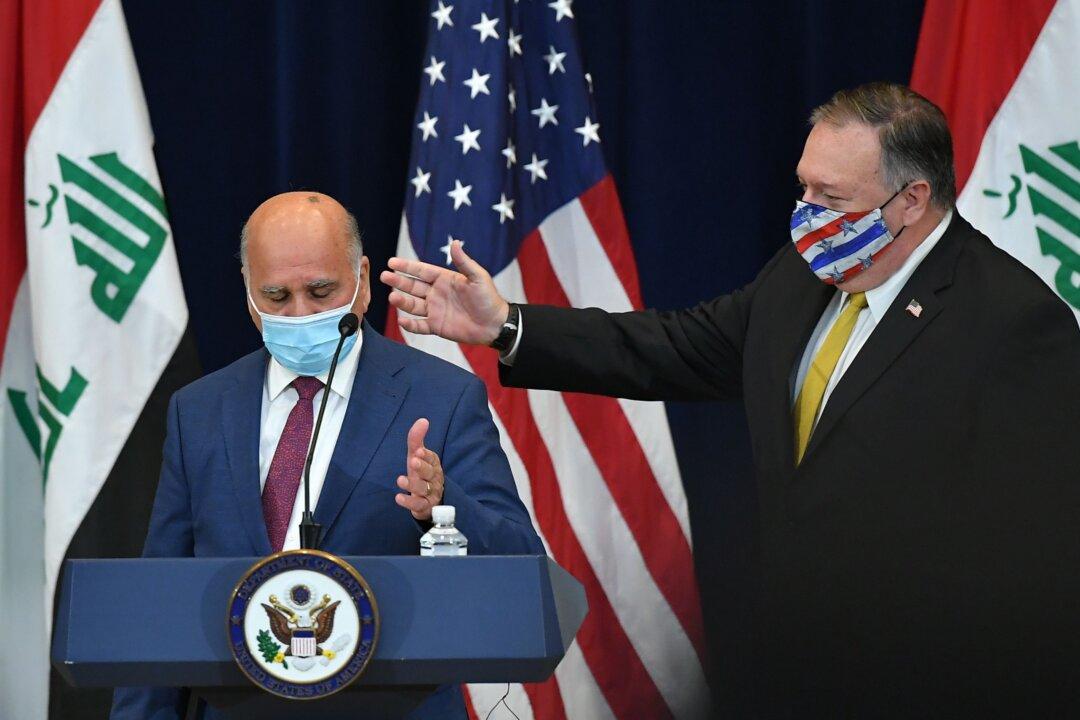Iraq tried to strike a “balanced foreign policy” between the United States and Iran as its high-level delegation held a second strategic dialogue with their U.S. counterparts in Washington, according to experts.
Iraqi Foreign Minister Fuad Hussein held a joint press availability on Aug. 19 with U.S. Secretary of State Mike Pompeo, where Hussein spoke about Iraq’s relationships with its ally, the United States, and also with its neighbor, Iran.





